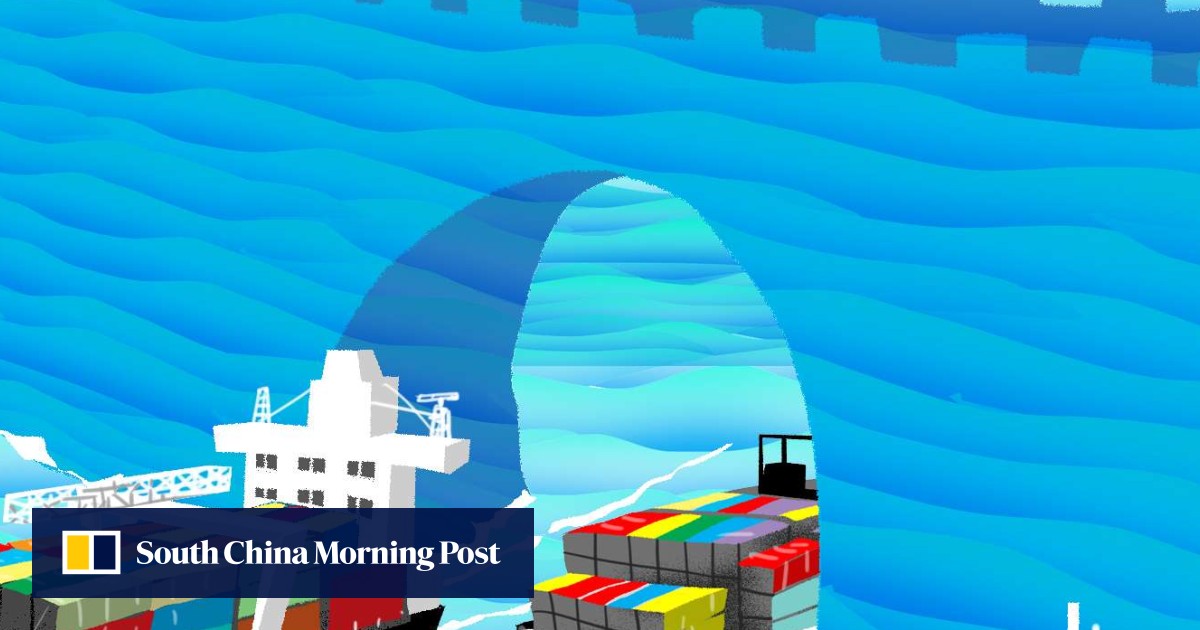A New Cold War Brewing: The Rare Earth Minerals Struggle

Table of Contents
The Geopolitical Landscape of Rare Earth Minerals
The global distribution of rare earth minerals is highly uneven, leading to significant geopolitical implications. China currently dominates the rare earth mining and processing landscape, controlling a disproportionate share of the global supply. This dominance creates vulnerabilities for countries reliant on these materials for their technological and industrial sectors. The implications are far-reaching:
- China's dominance in rare earth mining and processing: China holds a near-monopoly, controlling approximately 70% of global rare earth production and refining. This concentration of power raises concerns about potential supply disruptions and price manipulation.
- The strategic importance of rare earths for various technologies: Rare earth elements are crucial components in a vast array of high-tech applications, from smartphones and wind turbines to electric vehicles and military hardware. Their scarcity gives them considerable strategic value.
- Concerns about resource security and potential disruptions: The dependence on a single major supplier creates significant vulnerabilities for nations. Any disruption to the supply chain, whether due to political instability, trade disputes, or natural disasters, could have severe economic and geopolitical consequences.
- Diversification efforts by other countries and the challenges involved: Several countries are investing heavily in developing their own rare earth mining and processing capabilities. However, establishing a robust and competitive rare earth industry requires significant capital investment, technological expertise, and time.
The Technological Dependence on Rare Earth Minerals
The modern technological world is heavily reliant on rare earth minerals. These elements are not easily substituted, making them indispensable for a wide range of critical technologies. The implications of shortages are profound:
- Essential components in electric vehicles (EVs), wind turbines, and smartphones: Rare earths are essential for the powerful magnets used in electric vehicle motors, wind turbine generators, and the tiny speakers and vibration motors in our smartphones.
- Use in military applications like guided missiles and radar systems: Rare earths play a crucial role in advanced military technologies, enhancing their performance and capabilities. This adds a significant national security dimension to the rare earth minerals struggle.
- Impact of rare earth shortages on technological advancement: A scarcity of rare earths could severely hamper technological innovation and progress across various sectors, from renewable energy to defense.
- The search for alternative materials and sustainable practices: Research and development efforts are underway to identify alternative materials and processes to reduce our reliance on rare earths. However, finding suitable substitutes presents significant scientific and technological challenges.
Environmental Concerns and Sustainable Mining Practices
The traditional methods of rare earth mining and processing have severe environmental consequences. The industry faces increasing pressure to adopt more sustainable practices:
- Environmental damage caused by traditional rare earth mining methods: Open-pit mining often leads to habitat destruction, water pollution, and soil erosion. The processing of rare earths also generates significant quantities of hazardous waste.
- Water pollution and soil degradation: Rare earth mining can contaminate water sources with radioactive and toxic elements, posing risks to human health and the environment. Soil degradation reduces land productivity.
- The development of cleaner mining and processing technologies: Researchers are working on developing cleaner and more efficient mining and processing techniques to minimize environmental damage.
- The importance of responsible sourcing and recycling: Promoting responsible sourcing and increasing recycling rates are crucial for mitigating the environmental impacts of rare earth mining.
International Cooperation and Policy Responses
Addressing the challenges posed by the rare earth minerals struggle requires international cooperation and well-defined policy responses. Several initiatives are underway, but much more is needed:
- International collaborations to secure sustainable and ethical rare earth supply chains: International organizations and governments are working together to establish more transparent, secure, and sustainable rare earth supply chains.
- Government policies aimed at promoting domestic rare earth production: Many countries are implementing policies to encourage domestic rare earth mining and processing, reducing their dependence on foreign suppliers.
- Investment in research and development for alternative materials and technologies: Significant investments are being made in research to find alternative materials and technologies that can replace or reduce the need for rare earth elements.
- The role of trade agreements and sanctions in influencing the market: Trade agreements and sanctions can be used to incentivize responsible mining practices and promote fair competition in the rare earth market.
Conclusion
The rare earth minerals struggle presents a complex web of geopolitical tensions, technological dependencies, and environmental concerns. China's dominance, coupled with growing global demand and the environmental impact of mining, creates a volatile situation with potentially far-reaching consequences. International cooperation, investment in sustainable technologies, and responsible sourcing are crucial to navigating this challenge. The rare earth minerals struggle is a critical issue that demands our attention. Understanding the challenges and advocating for responsible solutions is vital to preventing a full-blown resource war. Learn more about the rare earth minerals struggle and join the conversation today!

Featured Posts
-
 Jalen Brunson Unhappy About Missing Cm Punk Seth Rollins Wwe Raw Match
May 17, 2025
Jalen Brunson Unhappy About Missing Cm Punk Seth Rollins Wwe Raw Match
May 17, 2025 -
 Finding Quality On A Budget Practical Tips And Tricks
May 17, 2025
Finding Quality On A Budget Practical Tips And Tricks
May 17, 2025 -
 Cybercriminal Accused Of Millions In Office365 Executive Account Theft
May 17, 2025
Cybercriminal Accused Of Millions In Office365 Executive Account Theft
May 17, 2025 -
 Prosvjednici U Berlinu Upad U Teslin Izlozbeni Prostor Prijetnja Planetu
May 17, 2025
Prosvjednici U Berlinu Upad U Teslin Izlozbeni Prostor Prijetnja Planetu
May 17, 2025 -
 Rockwell Automations Strong Earnings Drive Stock Surge Market Movers Include Angi Borg Warner
May 17, 2025
Rockwell Automations Strong Earnings Drive Stock Surge Market Movers Include Angi Borg Warner
May 17, 2025
